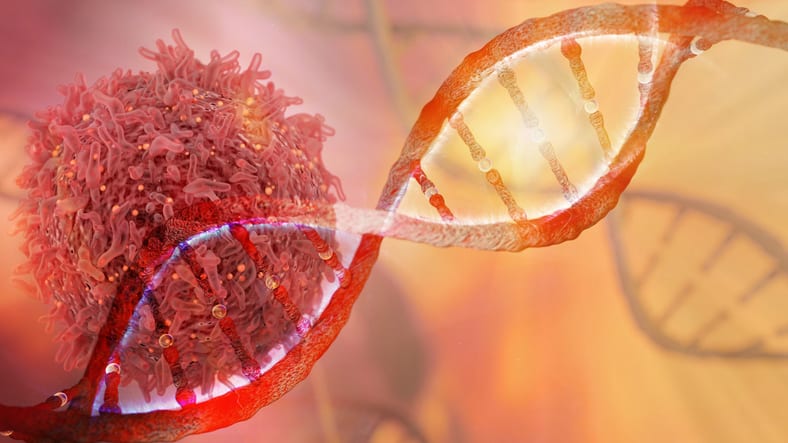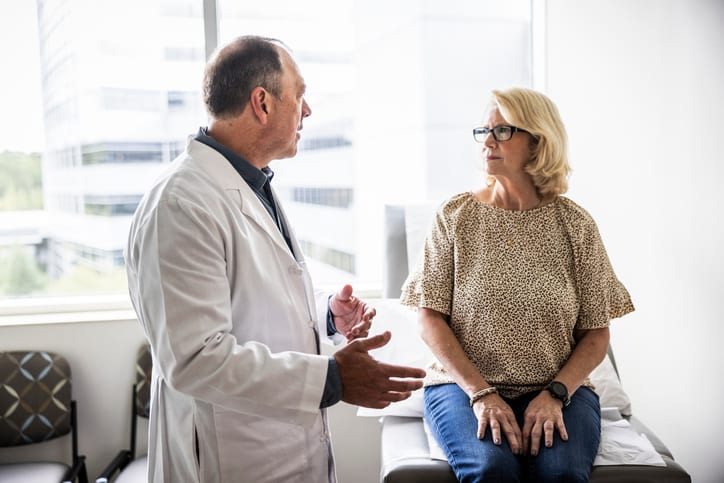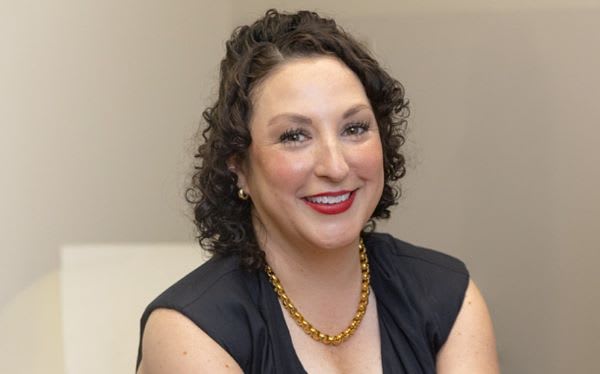Breast Surgery
Surgical Treatments for Breast Cancer
Surgery is often the first step in a breast cancer treatment plan. At the Providence Swedish Cancer Institute, our expert breast surgeons combine advanced surgical techniques with compassionate care. We'll guide you through your surgical options with a focus on improving outcomes, reducing side effects, and decreasing your risk of cancer recurrence.

A Focus on Confidence & Compassionate Care
Breast cancer surgery is about more than treating cancer - it's about helping you move forward with confidence. The procedure that you choose could affect your recovery time, your quality of life, and both short- and long-term outcomes. We're here to provide all the latest surgical innovations while supporting your physical and emotional needs.
We want to help you make the best decision for you.
We understand that healing is a journey, so we also offer ongoing resources like cancer rehabilitation, genetic counseling, and personalized recovery plans to help you feel your best - and keep living your best life after surgery.
Advanced Breast Surgery
We offer advanced breast surgeries that prioritize the outcomes of your cancer treatment and cosmetic considerations, from preserving the breast's natural appearance to innovative reconstructive options. Surgical options include:
Breast cancer surgery options
These techniques prevent the accumulation of lymphatic fluid that leads to swelling, known as lymphedema. They’re less invasive and help ensure that only necessary lymph nodes are removed. Reverse lymphatic mapping helps identify which lymph nodes can be preserved, while lymphovenous bypass surgery helps reestablish lymphatic drainage.
Axillary lymph node dissection involves the surgical removal of groups of lymph nodes under the armpit. Once removed, they are examined to determine whether cancer is present.
Excisional breast biopsy uses different tools or instruments to perform targeted localization techniques that help the surgeon identify the exact location of a growth or abnormality before they remove it entirely. Then, the tissue is tested for the presence of cancer cells.
An excisional breast biopsy removes a small area of tissue for closer examination. When the area can’t be felt during a physical exam, targeted localization techniques — such as placing a small wire or marker with imaging guidance — help the surgeon precisely identify and remove the correct tissue. This approach improves accuracy and helps guide your diagnosis and treatment plan.
Lumpectomy, also known as partial mastectomy, is a procedure in which only cancerous tissue is removed from the breast. Since this option allows you to keep most of your breast tissue, you could have a better cosmetic outcome and a faster recovery time.
Mastectomy with immediate reconstruction is a surgical option that involves removing and reconstructing the breast during the same procedure. Surgeons may use an implant or tissue from another area of the body to perform the reconstruction.
Risk-reducing mastectomy is performed to prevent the development of breast cancer in patients with a higher-than-average risk of the disease. In some cases, the nipple and areola can be retained for breast reconstruction. Hopefully, this lowers the risk of cancer and reduces the need for future intervention or treatments.
What to Expect
Your care team takes time to understand you beyond your diagnosis - learning everything from your physical and emotional needs to your personal goals. This personalized approach is supported by the expertise of our entire breast cancer team. Our specialists collaborate in multidisciplinary tumor boards, where cancer experts come together to review complex cases and share insights.
About a week before surgery, we'll schedule a pre-admission visit to:
- Assist with any remaining pre-surgical lab work or tests
- Review what will happen during your surgery
- Explain potential side effects
- Discuss medications and post-surgery care, including in-home help or equipment if needed
You'll receive information to prepare for your hospital admission. If you have any questions after your pre-admission appointment, you can reach out to your nurse or care coordinator, who will be happy to help.
On the day of your surgery, you will meet with an anesthesiologist, who confirms details of your medical record, clarifies any questions about your medical history, and performs a physical exam.
During this time, you can discuss the plan for your care, express any concerns about potential side effects, and ask any questions that you have about the anesthesia.
The specifics of your surgery are determined by your surgery type and individual needs, but one factor is always consistent – you’re being treated by an expertly trained team of surgeons, anesthesiologists, surgical nurses, and technicians.
The length of your surgery depends on several factors, including the type of procedure, whether reconstruction is being done, and the complexity of the procedure. The care team will inform your loved ones of your progress and provide updates during surgery.
Following surgery, you'll be moved to recovery where your care team can monitor your vital signs and manage your pain as the anesthesia wears off.
Postoperative care instructions will be provided before being discharged. Instructions could include information about wound care, activity restrictions and pain management.
For more extensive surgeries - such as a mastectomy with immediate reconstruction or lymph node removal - you may be required to stay overnight, or longer, to ensure proper recovery.
You'll have several follow-up appointments after breast cancer surgery for the first few weeks. This helps monitor healing and manage any complications. As time goes on, your appointments will be less frequent, but regular checkups are required so that we can continue to manage any of your ongoing treatment and reconstruction needs and monitor any signs of recurrence.
Services are also available to help you through every treatment stage.
Let's Talk Breast Cancer: Beyond the Pink Ribbon
Join us for a compelling episode of Talk With a Doc, where Dr. Angelena Crown, a distinguished breast surgeon renowned for her expertise in oncoplastic surgery, discusses what you need to know about breast cancer.
In this episode, you'll discover:
- Detailed insights into the epidemiology of breast cancer.
- The crucial role of equity in healthcare and patient access.
- Updates on innovative breast cancer screenings and surgical techniques.

Frequently Asked Questions
It’s natural to feel nervous about surgery, but your care team will talk you through the process, helping you prepare for surgery and answering all your questions well in advance.
As part of your personalized care plan, we offer advanced surgical options tailored to your diagnosis and goals, including minimally invasive procedures, when possible, along with reconstruction if needed. After surgery, we provide detailed recovery instructions and make sure that you have all the ongoing support you need to help you heal with confidence.
Surgery may be all that your care plan requires if your cancer was diagnosed in its early stages and hasn’t spread to other parts of the body.
However, surgery can be accompanied by medical oncology treatment such as chemotherapy, immunotherapy, hormone therapy and targeted therapy to meet your specific needs and give you the highest likelihood of a successful outcome.
Radiation may also be recommended to help shrink tumors prior to surgery or following surgery to decrease the chance of recurrence.
In some cases, your care team may recommend chemotherapy before surgery, known as neoadjuvant chemotherapy. This approach can be especially important for aggressive or fast-growing types of breast cancer.
Starting chemotherapy sooner allows it to work throughout the body, helping prevent the cancer from spreading. It can also shrink tumors, which may make surgery less invasive and reduce the risk of long-term side effects.
For some patients, neoadjuvant chemotherapy can decrease the size of the tumor or help avoid complications if lymph nodes are involved. And in some cases, treatments are only approved when given before surgery — making timing an essential part of your personalized plan.
Your recovery time depends on which type of surgery you have.
You may be in the hospital for one or two days following your surgery, although some procedures are done on an outpatient basis. Some patients can return to their regular activities within a few weeks, while others may take longer.
Before surgery, your care team will walk you through what to expect and provide a detailed recovery plan. This includes guidance for managing pain, any activity restrictions, and information about follow-up visits — so you can make arrangements and feel confident going into surgery.
Surgery can leave scars. The extent of scarring and its visibility depends on the type of surgery that you have. Your care team can talk to you about any concerns, including options for reconstructive surgery, if suitable, and ways to improve scar healing and appearance.
Yes, our expert plastic surgeons offer a range of reconstruction options to preserve the breast’s appearance. Your breast cancer surgeon will collaborate closely with your plastic surgeon to tailor the best options for you — based on your diagnosis, treatment plan, and personal goals. It is not uncommon for both surgeons to be present during the initial breast surgery—especially when immediate reconstruction is desired.
Treatment timelines vary depending on your diagnosis. Some surgical procedures are done on an outpatient basis. More complex cases may require a hospital stay.
Medical oncology and radiation treatments typically involve multiple treatment sessions over a period of days or weeks. Treatment timelines vary depending on the type and stage of your cancer. Your care team reviews your treatment plan with you, as well as any options that may impact length, frequency and duration of treatment.
Following active treatment, you will see your physician periodically to monitor any signs of recurrence.
We provide a full range of supportive care services to support you during and after your cancer treatment. Some of these services include:
- Art therapists
- Cancer rehabilitation (onco-physiatry)
- Care coordinators
- Genetic counseling (cancer geneticist)
- Health educators
- Medical massage (edema, lymphedema management)
- Music therapist
- Naturopaths
- Nutritionists
- Oncology nurses
- Social workers
- Speech and language pathology
We can also help with finances, food, transportation, and other challenges for eligible patients through our patient assistance fund.
See the full list of supportive care services.
Note: Some services are provided by local partners and vary based on location. Please contact your clinic for more information.
News & Info From Our Experts






